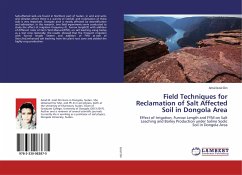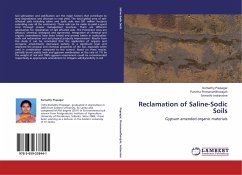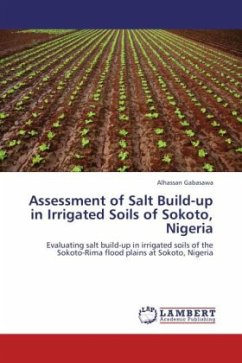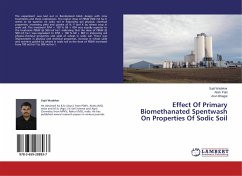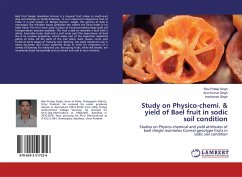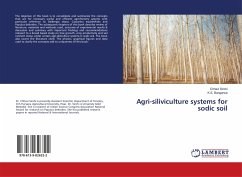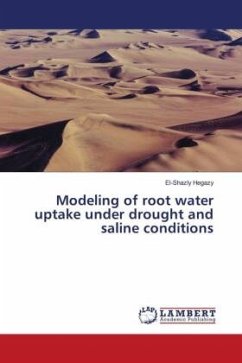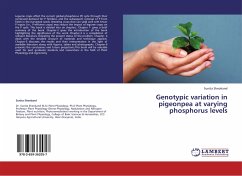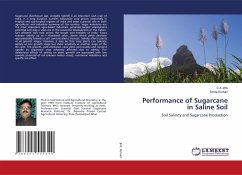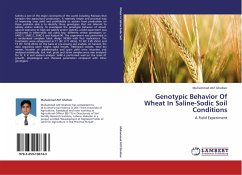
Genotypic Behavior Of Wheat In Saline-Sodic Soil Conditions
A Field Experiment
Versandkostenfrei!
Versandfertig in 6-10 Tagen
39,99 €
inkl. MwSt.

PAYBACK Punkte
20 °P sammeln!
Salinity is one of the major constraints of the world including Pakistan that hampers the agricultural production. A relatively simple and practical way of improving crop yield and profitability to sustain food production on these problem soils is to identify those genotypes that are tolerant to salinity and/or sodicity. To investigate the genotypic behavior of wheat against tolerance to high soil salinity and/or sodicity, a field experiment was conducted in saline-sodic soil using four different wheat genotypes i.e. SARC-1, SARC-2, SARC-3 and Pasban-90. The experiment was performed in a rando...
Salinity is one of the major constraints of the world including Pakistan that hampers the agricultural production. A relatively simple and practical way of improving crop yield and profitability to sustain food production on these problem soils is to identify those genotypes that are tolerant to salinity and/or sodicity. To investigate the genotypic behavior of wheat against tolerance to high soil salinity and/or sodicity, a field experiment was conducted in saline-sodic soil using four different wheat genotypes i.e. SARC-1, SARC-2, SARC-3 and Pasban-90. The experiment was performed in a randomized complete block design (RCBD) with four replications. The treatments were categorized as T1 (EC 3.71 dS/m), T2 (EC 5.85 dS/m) and T3 (EC 10.56 dS/m) on the basis of pre-sowing soil analysis. At harvest, the data regarding plant height, spike length, 1000-grain weight, total dry matter, Number of spikelets/spike and grain yield were recorded and analyzed statistically. Soil, leaf, grain and straw samples were also analyzed for N, P, K and sodium analysis. SARC-3 performed well on the basis of growth, physiological and chemical parameters compared with other genotypes.



